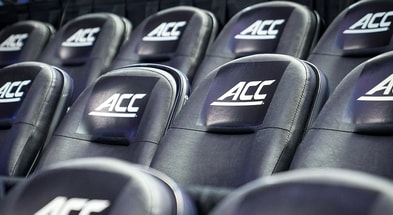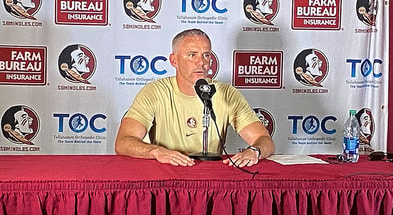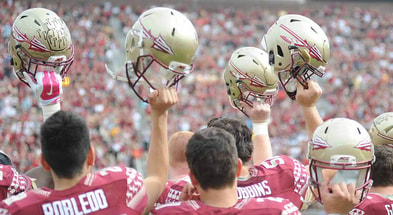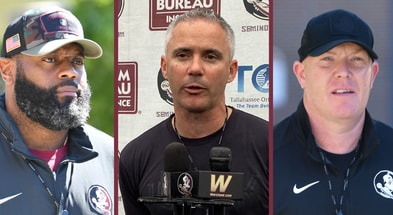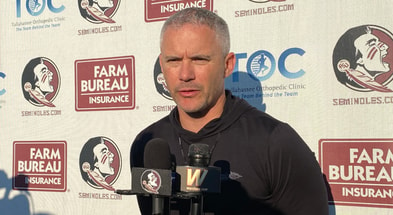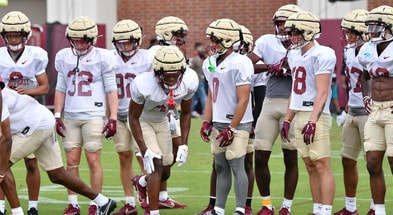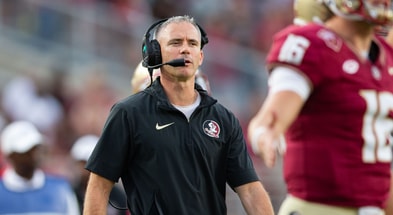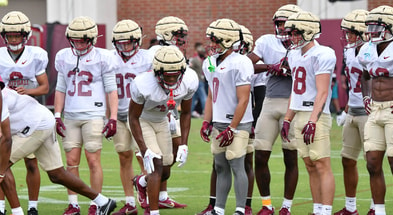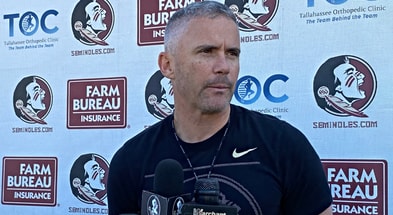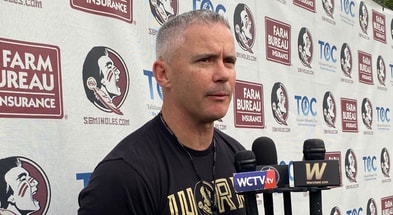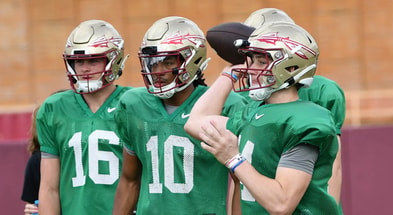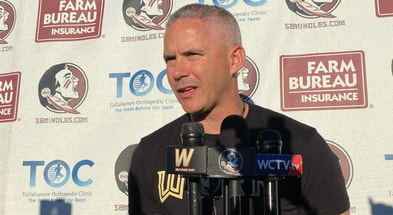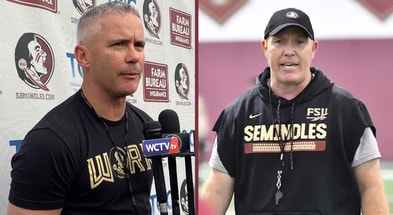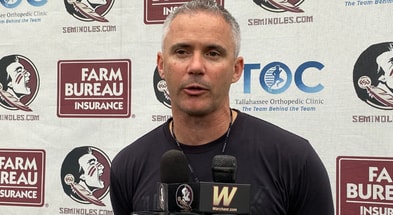Florida State's Michael Alford: ACC takes 'step in right direction' with new revenue models
AMELIA ISLAND — Media interviews during the ACC spring meetings are typically much different than the ones conducted at the conference’s annual football or basketball media days.
Most here are done one-on-one or in small groups, with reporters asking athletics directors and coaches questions about a variety of topics — from the mundane (scheduling models and rules changes) to the sensational (allegations of tampering with transfers and the use of NIL in recruiting).
Seldom, if ever, does a coach or administrator draw a crowd of a dozen or more reporters the way Florida State’s Michael Alford did on Tuesday. But the Seminoles’ second-year A.D. knew the attention was coming after his comments earlier this year and again last week to Warchant about FSU’s push for greater revenue from the ACC.
And after two days of meetings, Alford said he was encouraged by some of the progress the conference made in that area this week.
“I’m very optimistic,” Alford said, taking a moment to praise ACC Commissioner Jim Phillips, Deputy Commissioner Ben Tario and their staff for coming up with new revenue models. “They have really taken a proactive approach to this. They understand the issues. They’ve brought some various models to us that are being very aggressive, and that’s something as a league we need to look at so we make sure we’re keeping pace with our peers out there.
“That we are continuing to fund our programs at a championship level.”
While he was unwilling to offer specifics, saying that the conference is still mulling over several models, the new approach appears geared toward providing larger slices of revenue for schools that have greater success on the field — as opposed to splitting all revenue equally.
For example, any team that makes the College Football Playoff would receive a larger percentage of the earnings for that appearance than the other ACC schools. In the past, the conference split that revenue evenly, with only a bonus to cover expenses going to the participating school.
Schools that advance to the NCAA postseason in basketball would also receive larger payouts than the ACC schools that don’t.
Alford described the new approach as, “a step in the right direction.”
*** Sign up for premium access to Warchant.com and the On3 Network for only $29.99. ***
The Seminoles’ athletics director said multiple times that he was happy to see other ACC schools embrace the idea of weighted revenue sharing, when that philosophy has been considered off-limits in the past
However, multiple sources have told Warchant that the changes are not going to make a major dent in the massive revenue gap — an estimated $30-$40 million each year per school — that is emerging between the ACC and the much more profitable Big Ten and SEC.
The other schools in the conference also have been less willing to discuss changing the way money is distributed from the ACC’s television contract.
Alford has said he would like to see the schools that draw the highest TV ratings — Florida State leads the way in that category, not coincidentally — receive a larger percentage of that money each year. But that did not appear to be on the agenda this week and could be a battle for a different time.
In the meantime, Alford said he wants to make sure the conference doesn’t fall further behind its peers when it comes to annual revenue.
*ALSO SEE: Updates from the ACC spring meetings
“We’re never going to cover the entire gap, but it will allow you to be competitive,” he said, before being asked how much additional revenue Florida State would like to draw from the conference.
“There’s not a magic number right now. What we are looking for is to make sure we’re competitive. Because you’re looking for the revenue shares of other leagues, and what they’re gonna have and how they’re gonna invest it. And you need to make sure your going to stay up to par with some of the changes they’re going to do and they’re going to use that revenue. …
“We’re in the third-best media agreement right now. We want to stay the third-best. We’ve been able to compete with them (rival teams) on being the third-best media agreement. A lot of it comes down to choices we will make on funding, but as long as we’re there and competitive, that’s what the number is.”
Talk about this story with other die-hard FSU football fans on the Tribal Council.
